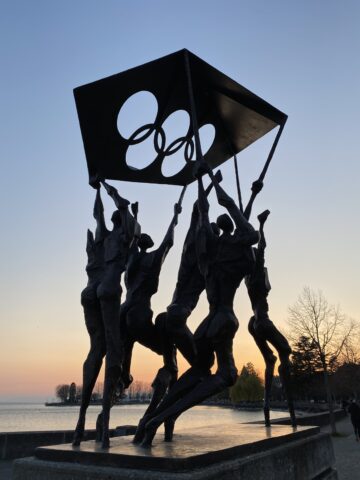No appeal to the CAS for doping-related proceedures involving “national-level” athletes
4A_618/2019, Judgment of 17 September 2020 A v. ESKAN (appeal against the CAS award of 29 October 2019 CAS 2018/A/6015)
In this case, the SFT dealt with a case of a “national-level” athlete whose appeal could not be brought to the CAS in line with the relevant regulations of the World Anti-Doping Code (WADC), as it has been transposed in the national regulations.
The dispute between a professional football Player (the Player) and the Greek Antidoping Agency (ESKAN) arose after an antidoping test revealed the presence of a prohibited substance under the WADC. ESKAN rendered a first-instance decision confirming an Anti-Doping Rule Violation (ADRV), appealed by the Player and confirmed by the Disciplinary Committee. The decision was written in Greek and did not contain any indication of the legal remedies. The Player filed an appeal against said decision to the CAS but ESKAN did not file an answer, nor did it participate in the appeal proceedings. The relevant part of the regulations provided that an appeal against the ESKAN decision was only possible to the CAS for “participation in an international event or in cases involving international-level athletes”. At the request of CAS, FIFA confirmed that the Player did not qualify as an “international level player”. While the player acknowledged this, he argued that CAS had still jurisdiction since the existence of the Greek national authority that was foreseen to hear appeals against decisions rendered by the Disciplinary Committee was not established. The CAS still dismissed the appeal for lack of jurisdiction.

In the subsequent motion to set aside the CAS award, the SFT reiterated the “Einlassung” theory, i.e., that any jurisdictional objections must be filed before the submissions to the merits, however, this principle does not apply when the respondent fails to submit an answer as in this case. The SFT also held that an arbitral tribunal may carry out investigative measures in order to determine its jurisdiction. The SFT further confirmed the arbitrator’s position that it is for the person who brings the case before the CAS to show that the domestic legal remedies have been established, or that they do not exist, considering that the Player failed to do so. The Player also invoked a violation of public policy due to the fact that the award did not contain any indication of the legal remedies available. The SFT left the admissibility of the argument from the scope of Art. 190 (2) (e) LDIP open and swiftly dismissed it since it should be for the addressee of the decision to take the necessary steps and seek the necessary information himself, also because the Player was represented by a lawyer during the Disciplinary Committee proceedings.





